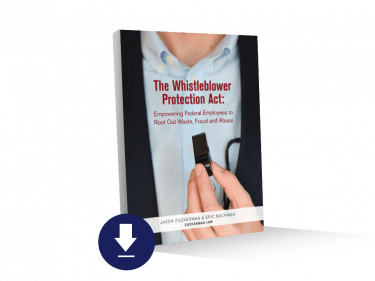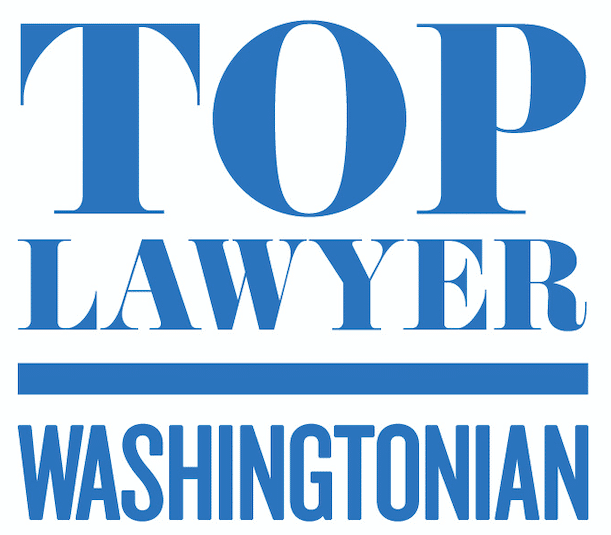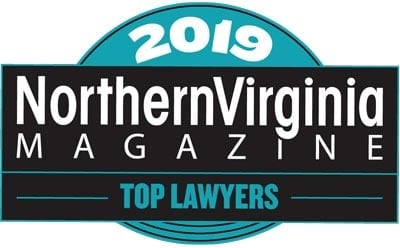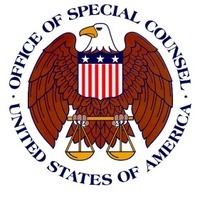An employee who believes a federal employer has unlawfully retaliated against the employee has several options. The employee may:
- File a complaint with OSC. If OSC finds the employee suffered retaliation, it reports its findings to the Merit Systems Protection Board (MSPB or Board) and can petition the Board on behalf of the employee to correct the agency’s retaliatory action (see OSC Complaints of Whistleblower or Other Retaliation).
- File an individual right of action (IRA) appeal before the MSPB, if OSC finds no wrongdoing or retaliation, within 60 days of OSC’s determination. The employee can appeal the Board’s decision to the Federal Circuit. The scope of protected disclosures under the WPA was broadened with the enactment of the WPEA in 2012 (see IRA Appeals).
Appeal a retaliatory personnel action directly to the MSPB if the employee is eligible to do so and the retaliatory action is one of the personnel actions directly appealable to the MSPB (see Otherwise Appealable Actions).
If you are seeking representation in a Whistleblower Protection Act claim, contact the whistleblower lawyers at Zuckerman Law by emailing us through this website or calling us at 202-262-8959. And to learn more about whistleblower protections for federal employees, see Whistleblower Protections Under the Whistleblower Protection Act.
Guide to the Whistleblower Protection Act
Whistleblower attorneys Eric Bachman and Jason Zuckerman, former senior officials at the U.S. Office of Special Counsel, have released a guide for federal employee whistleblowers titled The Whistleblower Protection Act: Empowering Federal Employees to Root Out Waste, Fraud and Abuse and is available for download by clicking here.
Drawing on their experience enforcing the WPA at OSC and representing whistleblowers in private practice, the guide provides an overview of the WPA and offers practical tips for navigating some of the challenging issues that often arise in whistleblower cases. Topics covered include:
- What Disclosures are Protected Under the Whistleblower Protection Act?
- Does the Whistleblower Protection Act Protect Employees Who Exercise an Appeal or Grievance Right?
- Prohibited Forms of Whistleblower Retaliation
- Proving Knowledge of Protected Whistleblowing
- Proving Causation
- What is an Agency’s Burden to Avoid Liability Once the Whistleblower Has Proved Causation?
- Seeking Relief from Retaliation
- Election of Remedies
- Can OSC Seek a Stay of a Personnel Action?
- Damages or Remedies for Retaliation
- Gag Orders and Non-Disclosure Agreements
Experienced Washington DC Whistleblower Protection Act Lawyers
Zuckerman Law has represented whistleblowers before the Office of Special Counsel, Offices of Inspectors General, and Congressional oversight committees. The firm is uniquely qualified to represent whistleblowers in the federal government because two of the firm’s attorneys served in senior roles at the U.S. Office of Special Counsel.
- Eric Bachman served as Deputy Special Counsel, Litigation and Legal Affairs, OSC, where he spearheaded an initiative to combat whistleblower retaliation at the Department of Veterans Affairs. During Bachman’s tenure at OSC, the number of favorable actions for whistleblowers increased by over 50% agency-wide.
- Jason Zuckerman served as Senior Legal Advisor to the Special Counsel at OSC, where he worked on the implementation of the Whistleblower Protection Enhancement Act and several high-profile investigations.
The firm has represented whistleblowers testifying before the House Financial Services Committee and vigorously opposed efforts to silence whistleblowers. The whistleblower protection lawyers at Zuckerman Law have also helped federal employees combat unlawful gag provisions in agency policies or agreements.
If you are seeking representation in a whistleblower protection case, click here, or call us at (202) 769-1681 or (202) 262-8959 to schedule a free preliminary consultation.













